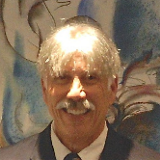Cambridge Healthtech Institute第15回年次
Immunology for Biotherapeutics
(バイオ医薬品に対する免疫学)
治療上の利点に対する免疫システムの理解と操作
2023年10月2日
10月2日(月)
Registration and Morning Coffee9:00 am
CURRENT UNDERSTANDING OF IMMUNE MECHANISMS
免疫機構に関する現在の理解
Chairperson's Opening Remarks
Ethan Shevach, MD, Senior Investigator, Cellular Immunology, Laboratory of Immune System Biology, NIAID, NIH
Current Understanding of the Role of T Regulatory Cells and Their Modulation
 Ethan Shevach, MD, Senior Investigator, Cellular Immunology, Laboratory of Immune System Biology, NIAID, NIH
Ethan Shevach, MD, Senior Investigator, Cellular Immunology, Laboratory of Immune System Biology, NIAID, NIH
The major role of the immune system is to provide protective responses to pathogenic microorganisms. The immune system consists of several distinct cell types and each type plays a unique role. Dysregulation of the immune system can result in responses against self-antigens and in the development of autoimmune diseases. A specialized subset of T lymphocytes, termed T regulatory (Treg) cells, functions to suppress anti-self-responses. Modulation of Treg function with drugs or biologics represents a major approach to the treatment of autoimmune disease.
Antigen Processing and Presentation: The Basis of T Cell Activation
 Kannan Natarajan, PhD, Staff Scientist, NIAID, NIH
Kannan Natarajan, PhD, Staff Scientist, NIAID, NIH
Antigen Presenting Cells process protein antigens into peptides for binding by either Major Histocompatibility Class I (MHC-I) or Class II (MHC-II) molecules, which are then displayed at the cell surface as peptide/MHC complexes, where they are recognized by T cell receptors leading to T cell activation. Cell biological, biochemical, and structural details of these processes as we now understand them will be discussed.
Networking Coffee Break11:00 am
The Role of the Innate Immune System and Implications for Biotherapeutics
 Jeff Zhu, PhD, Senior Investigator, Laboratory of Immune System Biology, NIAID, NIH
Jeff Zhu, PhD, Senior Investigator, Laboratory of Immune System Biology, NIAID, NIH
The field of innate lymphoid cell (ILC) biology has progressed rapidly, with appreciation of these cells’ role in immunity, barrier tissue integrity, and homeostasis. Unlike Th cells, ILCs respond to pathogens promptly without the need of antigen-specific receptor recognition. Understanding how ILCs differentiate and contribute to the immunoregulation in health and diseases is fundamentally important for the development of new strategies to treat autoimmunity, infection, and cancer.
Role of IgE and IgG/IgG4 in Modulating Type 1 Hypersensitivity Reactions in Human Allergic Disease
 Robert Hamilton, PhD, D.ABMLI, Professor, Medicine & Pathology, Clinical Immunology & Allergy, Johns Hopkins University
Robert Hamilton, PhD, D.ABMLI, Professor, Medicine & Pathology, Clinical Immunology & Allergy, Johns Hopkins University
This presentation will overview the 4 areas of hypersensitivity: immediate-type 1-IgE-mediated, type II-antibody-dependent cytotoxicity, type III-immune-complex-mediated, and delayed-type hypersensitivity. Type 1 human allergic disease will then be examined, covering its pathophysiology, current diagnostic strategies, four modes of disease management, and special caveats relating to food, drug, venom, and respiratory allergic disease. Finally, the new discipline of molecular allergology will be highlighted with an emphasis on 10 cross-reactive allergen families and how allergenic molecules have improved the accuracy of allergy diagnosis.
Luncheon Presentation (Sponsorship Opportunity Available) or Enjoy Lunch on Your Own12:20 pm
Session Break12:50 pm
HARNESSING THE IMMUNE SYSTEM FOR BIOTHERAPEUTICS
バイオ治療薬に対する免疫システムの利用
Chairperson's Remarks
Simone Nicholson, PhD, DABT, Director Toxicology, Biohaven Pharmaceuticals
Pushing the Boundaries of Antibody Based Therapeutics through Multi-Specifics and Drug Conjugates
 Paul Moore, PhD, CSO, Zymeworks
Paul Moore, PhD, CSO, Zymeworks
Antibody based therapeutics have provided great therapeutic benefit to many patients across various disease states. Multi-specific antibodies afford therapeutic opportunities not feasible with single-target antibodies or combinations, while drug conjugates provide opportunity to extend therapeutic benefit through combining the targeting specificity of an antibody with a “payload." Examples of these advances will be summarized in the context of molecule design, target selection, biological characterization, and clinical benefit.
Immunology Safety Considerations for Biotherapeutics
 Simone Nicholson, PhD, DABT, Director Toxicology, Biohaven Pharmaceuticals
Simone Nicholson, PhD, DABT, Director Toxicology, Biohaven Pharmaceuticals
Biotherapeutics, which include immunotherapies, antibody-drug conjugates, gene-based and cellular therapies, are currently used in the treatment of numerous diseases. Safety concerns arise with modality and with each unique mechanism of action of the biotherapeutic. Investigators are challenged to predict, monitor, and mitigate, if possible, potential adverse effects in patients while ensuring efficacy and satisfying the regulatory requirements for drug approval. Examples of these safety concerns and how their challenge is met and managed are the subject of this presentation.
Networking Refreshment Break2:55 pm
Assessing Drug Impact: The Importance of Strategic Immunogenicity Risk Evaluation
 Nicoline Videbaek, PhD, Principal Scientist, Novo Nordisk
Nicoline Videbaek, PhD, Principal Scientist, Novo Nordisk
A comprehensive understanding of the drug modality, mode of action, and immunogenicity risk is crucial to evaluate the impact of a given drug on both safety and efficacy. Immunogenicity risk evaluation involves analyzing both early prediction data and late clinical data. While early prediction data can provide insight into the potential immunogenicity risk, utilizing an integrated data approach that includes not only the appropriate assays but also the correlation of pharmacokinetic (PK), pharmacodynamic (PD), and anti-drug antibody (ADA) data with clinical efficacy and safety data is essential for a more accurate assessment. In this presentation, we will provide examples of how an integrated data approach, along with a thorough understanding of the drug modality and immunogenicity risk, can explain unexpected clinical data.
Harnessing the Immune System for Biotherapeutics
Simone Nicholson, PhD, DABT, Director Toxicology, Biohaven Pharmaceuticals
Paul Moore, PhD, CSO, Zymeworks
Nicoline Videbaek, PhD, Principal Scientist, Novo Nordisk
Close of Symposium4:15 pm
Dinner Short Course Registration5:00 pm
Recommended Dinner Short Courses*5:30 pm
SC3: Validation of ADA Assays and Cut Point Calculations
SC4: Recent Advances with Cell and Gene Therapy
*Separate registration required. See short course page for details.
* 不測の事態により、事前の予告なしにプログラムが変更される場合があります。




